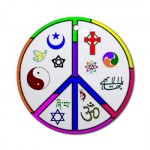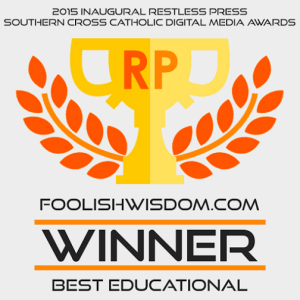
Choosing Religion, Buffet-style
I recently went away to a monastery for a time of silent retreat. As there were a few other people staying at the same time, there were brief conversations shared during meals.
On one of the evenings we were having dinner, Darren, who had just arrived for a “getaway”, was proceeding to tell us a little about himself. Darren was a young man in his mid-30s, the sort of guy you would not want to get on the wrong side of, well built with tattoos down both arms but a genuinely kind man. He was sharing how he was fascinated by different religions and loved to learn about what different faiths believe.
One of my fellow retreatants asked Darren what religion he was, to which he replied that he was a “Buddhist Jew”. Now, of course, there is no official religion of Jewish Buddhists and I would be willing to wager that Darren was officially neither a Jew nor a Buddhist. It was far more likely that his name was scribed into the baptismal register of the local Protestant denomination as a child but that he was not actively raised in any faith.
I am certainly not out to condemn this chap, though. He is no doubt responding to the movements of God in his life and as, St Edith Stein beautifully said, “All who seek truth seek God, whether this is clear to them or not”. I will be looking forward to being reunited with Darren at the ‘eschatological banquet’ (to quote a scripture professor I know).
The whole matter raised in my mind, though, the growing trend of buffet-style religion. It is the notion that one is able to wander down the shopping aisle of faith and select those elements one feels most comfortable with at that particular moment in time. Now granted, Buddhism would probably not have such a problem with this concept but Buddhism is more of a philosophy than a religion. The world’s major religions though, Judaism, Islam and Christianity, certainly do have an issue with the ‘pick and choose’ mentality because they do not consider religion is simply about whichever path one prefers to use in climbing the mountain of eternity.
Speaking from a Christian perspective, Jesus is not called ‘Jesus Christ’ because His surname was ‘Christ’ but because Christ means Messiah and that is what Jesus claimed to be. The Gospels cite Jesus referring to Himself as “the way, the truth and the life”. You would have noticed that Jesus used the definitive article, the. Not merely a nice guy, or a social liberator, Jesus claimed to be the true God. That statement made by Jesus leads us to two possible conclusions, (1) He is wrong; which means He is a liar and quite possibly a madman and we should have no part of Him or Christianity, or, (2) He is exactly who He says He is; the Son of God who was born of a virgin, who preached about eternity, established a Church on the rock of Peter, died on a cross, rose again and ascended into heaven. We must choose between one option or the other, liar or God; it is impossible for there to be a middle ground.
It is from this standpoint that Christianity, and specifically Catholicism, states that she possesses the fullness of truth. There is, of course, no shortage of people out there who will say that it is sheer arrogance for anyone to state that they offer the fullness of truth, but think about it; if Jesus is really who He said He was and if the Gospels really contain the story of His life, what else is Christianity going to say, indeed what else can she say?
There will continue to be many good people like Darren who begin the journey (or live the entire journey) taking a little from column A and a little from column B, seeing Jesus as a good man but not being able to take the next step in proclaiming with the Apostle Thomas, “my Lord and my God”. Thankfully, we know that God leads all people to Himself and will always bless a heart that is responding to truth, beauty and goodness in the best way it can. Living our own faith with surety and making genuine friendships with those around us is another way to share the great joy of faith.
Far from arrogance, Christianity calls us to the greatest mystery and reality that we will ever know. Each of us is completely free to choose what we will believe but at some point a genuine choice must be made. Happiness cannot be found in the shopping aisles of faith. Eventually we must take it all or leave it all.


